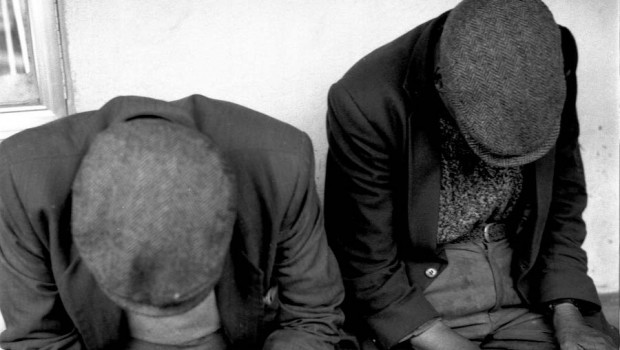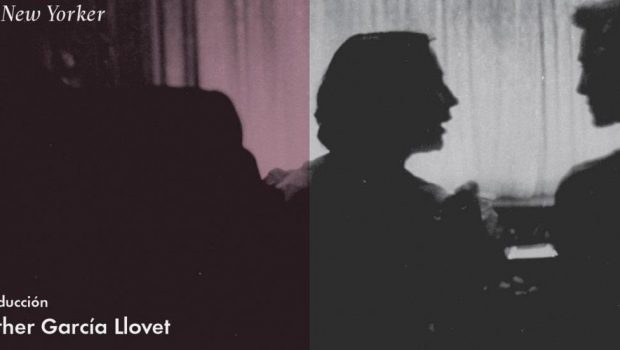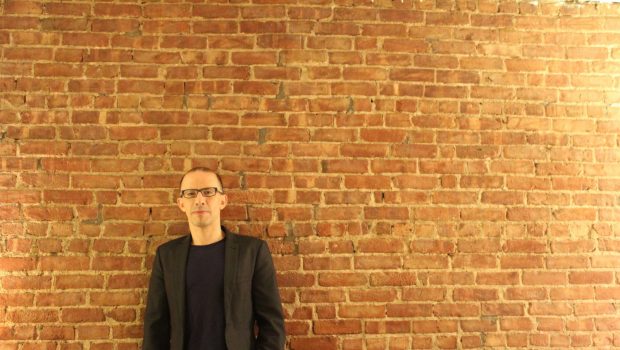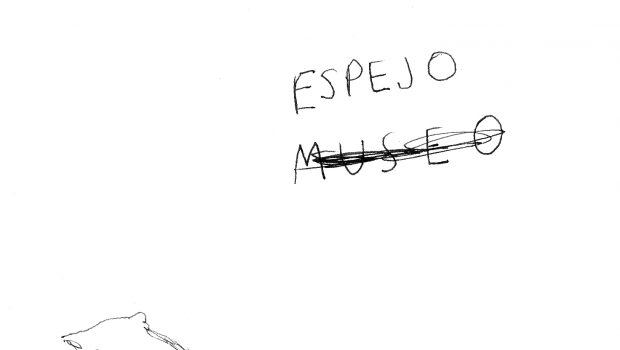Do It Yourself
Laura Emilia Pacheco
Translated by Tanya Huntington-Hyde
Goddamn crab! Once its bluish, armored body had emerged from the marshy waters, it glared at me with its buggy, jet black eyes and in a single, sweeping gesture, opened its large pincers and released the repulsive rotten meat tied to the end of a fishing line for bait. Allowing itself to placidly fall almost in slow motion back into the water, it seemed to say to me (in English): Don’t bother me, you idiot, you’re better off trying somewhere else. Aside from having wounded my pride as a fledgling fisherwoman, the crux of the matter was that trapping that crustacean meant the difference between eating and starving to death; or, even more importantly, between continuing to be submerged up to my waist in marshwater and finally putting an end to an endeavor that filled me with boredom and desperation, in the company of a group of people I was decidedly having trouble getting along with.
Despite having resided for four years—albeit sporadically— on the East Coast of the United States, I could never get used to the citizenry’s obsession with Do It Yourself. In Boston, where I lived with my gringo boyfriend, it seemed fun at first when he and his friends would buy stills, bottles, bottlecaps, and stickers to make their own beer and other liquors—with dubious results… Out of a catalogue, of course, because in this “Catalogue Nation” par excellence there’s a different one for every aspect of life. In time, I would gradually find other local customs less and less amusing. But during those golden days, when my boyfriend announced we’d spend the summer on the Chesapeake Bay, I intuited from his manner of speaking that he expected boundless gratitude from me, his Mexican girlfriend—something I’m not sure he would have required of any other nationality.
ANY FINAL REQUESTS, LULÚ?
I don’t know how I managed to miss the early warning signs. Despite a pronunciation I considered to be highly polished (symptomatic, no doubt, of the Mexican middle classes’ perpetual delusion that we dominate the English language), when I was making a connection in Miami to the airplane that would take me to my final destination, Boston, all the employees made fun of the way I said “Boston.” The “b” was admirable, not too plosive, but the inevitable gravidity of the “o” gave away my ethnic origins and everything they implied. But I wasn’t going to let that undermine my fantasy that U.S. Americans and Mexicans are like brothers, inhabiting the same North American region, citizens of the world, divided by religious, socioeconomic and political conditions that are admittedly somewhat different but, basically, sharing the same universal goal.
Not even the boundless hatred of the Guatemalans at the corner market a few blocks from my home, where Mexican and Central American merchandise was sold, managed to extinguish my dream of Bolivarian fraternity. Even though I stopped by quite often to purchase products that would mitigate my longing for the tastes and smells of my homeland, during the entire time I lived there, I never once managed to get them to return my smile.
“Buenos días,” I’d say, in hopes of feeling a little of that warmth the “Hispanic” community, as we’re known there, boasts of so frequently.
“Buenas,” they’d answer, shredding me to bits with their stares. From the harshness of their voices, it was easy to tell that Mexico was far from being their favorite country.
But I wasn’t going to let anything, anything, awaken me from my own “American dream,” or whatever it’s called, although I prefer not to digress regarding a sojourn whose goal was to escape my own problems in national territory. That, plus the illusion of traveling to the land of opportunity in order to be free! free! free! at last. Anyway, so I could start acting free and stop acting so depressed over finding myself far away from my own kind, once in awhile I’d allow myself to buy a bottle of strawberry-flavored Lulú soft drink from the Guatemalans (something I would never do in Mexico due to its high caloric content). For just a moment, the intensity of its pigmented liquid would allow me to imagine that mine was the best of both worlds: on one hand, the autonomy of living in a country where I was completely anonymous and on the other, the wealth of all my cultural and personal history carried on my back like a great tortoise shell. But the blazing tone of the soft drink only foreshadowed the red firing squad that is Reality.
ORGANIC MIGRATIONS
As if we formed part of a migration of whales or geese responding to the mysteries of the Earth’s magnetic field, my boyfriend and I set off along with all of the other inhabitants of the city on the universal stampede that was, for him, sacred: summer vacation. Since I’ve nearly always worked freelance, I travel sometimes, but I never consider it to be a vacation as such. Therefore, the concept sent me back to a childhood when I’d spend the “vacaciones” (as they were officially named) every summer at the port of Veracruz, in a magical house—which smelled of cedar and was filled with rose bushes— my paternal grandmother kept for that purpose. She was a very beautiful woman who’d mastered an imperial carriage and who taught me that those weeks off were an opportunity to shine, or in her case, glow. She bought me flamenco-col- ored dresses with flounces and crinolines. My mother would find I’d been converted during my stays in Veracruz into an authentic little jarocha, complete with curls, bows, rosy cheeks, white shoes, multicolored rings and earrings, all of which she’d take in with a pronounced arching of her eyebrows. Therefore —being a resident of the animal world, after all—I responded to the mysteries of my own internal migration by packing everything I’d need to recreate my (updated) childhood experience and shine like a goddess on the Chesapeake Bay.
But I didn’t feel updated in the least when confronted by the dismay brought on by my first encounter with my future father-in-law. We arrived at his house in Pennsylvania after several hours of driving on dreadful highways (New Jersey), followed by other, more idyllic ones through fields and woods that were right out of a movie—or at any rate similar to landscapes from the television series saturating all the Mexican channels—accompanied by delicious sandwiches that I’d had to prepare (Do It Yourself), because the idea of stopping at restaurants turned out to be unthinkable for my boyfriend, who adhered to a very sensible budget, the lion’s share of which was earmarked to pay off his astronomical university debt—no different from the rest of his friends, except he’d studied a profession he never practiced.
NOT ETHNIC, BUT MYSTIC CLEANSING
“Hello, my dear,” a tall, good-looking and very graceful man with a white beard and long, combed-back grey hair said to me in the sweetest voice imaginable. None of which would have mattered in the least if not for the fact that he was stark naked.
I tried harder than ever to hold his gaze, so that my eyes wouldn’t wander South of the Border, and to feign naturalness, so he wouldn’t think that, me being a Mexican and all, in my county it wasn’t common practice to visit one’s in-laws and find them dressed as Adam and Eve.
Mister Howell (that was Howell Jr.’s father’s name) was all smiles and when he walked, a cannabis halo of sorts accompanied him, its vapors conferring a certain saintly or Catholic-hermit air. Except that he practiced, with authentic fanaticism, the doctrine of the Universalist Unitarian Church that states if God is Love, it is inconceivable that he would eternally condemn his children to Hell.
I steeled myself to meet the second Missis Howell (the first, my boyfriend’s mother, had a severe drinking problem and devoted herself to providing holistic therapies, a career made possible by the impeccable efficiency of the U.S. postal service) and prepared myself for the worst. It turned out that “that bitch,” as my boyfriend dispassionately referred to his step- mother, was actually a very agreeable woman: petite, chubby, and dressed (fortunately) from head to toe in the classic, carefree style of those latitudes (freshly washed face, wide T-shirt, wide pants, comfortable shoes). But her dominant feature was that, unlike Mr. Howell, for some reason she was very, very rich.
The house was impeccable, decorated with the iciness of a professional. It looked like something that would be featured in Martha Stewart Living. The backyard, considered masculine territory by the Howell clan, was an organic Eden—albeit slightly overgrown—in which a free interpretation of a Japanese garden (goldfish, tiny cascades, bonsai forests, miniature pagodas with little lights that came on), stood cheek to cheek with plastic Halloween jack-o-lanterns, an American flag, and a ceramic entourage of seven dwarves (yes, those guys from Snow White,) the latest in Truper technology and in the middle, a single tree, covered by a tight plastic netting that obscured and protected its paradisiacal apples from the libidinous voracity of squirrels and raccoons.
The Howells (each with their own telephone number, which they paid for separately, just like everything else: meals, hotels, trips, the supermarket, etc.) were barely on speaking terms, but they were very kind to us. His nudity swathed in a low-cut caftan (the last time I’d seen a caftan was in the sixties, worn—with matching turban—by one of my grandmother’s Lebanese friends), Mr. Howell proceeded to serve us an abundant, monothematic and practically monotheistic meal that consisted of porridge: organic, cultivated by his own hand (Do It Yourself), amorphous, somewhat colorless, not at all odorless yet absolutely tasteless, of which he had prepared a gallon or two that we were expected to polish off during our brief stay in order to avoid the sin of wastefulness (God forbid). The experience left my intestines in an almost mystic state of purification, compared to which “Montezuma’s revenge” is child’s play.
THE RED FIRING SQUAD OF REALITY
My heels were sinking into the sands of the Chesapeake Bay just as irremediably as my relationship. There was no little beach, little beer, little hammock or little shrimp (in Mexico, we say everything in the diminutive,) but rather the harsh reality of a beautiful coastline with ice-cold waters, claustrophobic pup tents, filthy public latrines, horrendous canvas awnings for cooking under, and oppressive mosquito netting; each with a precise, military purpose that would become, if not strictly observed, the source of heated discussions. There was no shining, no curls, no bows. Up to my waist in muddy water, my makeup running, my hair tangled and my clothing giving off an unbearable stench, I was the spitting image of failure. So when the goddamn crab released my fishing line and my bare feet sank even deeper into the mud of a marsh which seemed determined to swallow me up and carry me straight to Hades, I understood that, despite my titanic efforts to belong, I was truly sunk.
Then suddenly, everything changed. My boyfriend’s friends (hapless fishermen like me) managed to convince him to leave Robinson Crusoe behind (I never understood what he was trying to prove) and take us to a local restaurant. After several Long Island Iced Teas—a blend of vodka, tequila, rum, gin, triple sec, sweet-and-sour mix and Coca-Cola, authentic truth serum— Howell Jr. confessed how dissatisfied he was with his life, how much he hated his job and how he longed to receive a Viking funeral when he died (the Howells hailed from Germany). It was beyond culture shock: our relationship was an electrocution of discontent. With something approaching tenderness, I listened as he told me, tearfully, how he imagined the ceremony would be; how he saw his shrouded body on a raft in flames, drifting away, disappearing into a vast sea.
Just then the waitress spread a newspaper on the table and emptied out the contents of an enormous bucket. A kind of universal deluge of steaming corn on the cob and great, red crabs fell before our eyes. With the wooden mallet she handed me (we each had our own) I grabbed one and shattered its red shell with a single blow, exposing the yellowish paste of its entrails and the pristine whiteness of its delicate, silky flesh. Finally: reality.
Although Howell Jr. never remembered having confessed his deepest anxieties to me under the effects of the truth serum, I still haven’t forgotten the confessions I made to myself that day. I decided to take hold of the reins of my own life and (for real this time) and live by the harsh code of the Do It Yourself doctrine. For the first time, following the pattern of my fate, I embarked on a reverse migration back to Mexico. There, I burned all my ships and started over.
Posted: April 8, 2012 at 9:20 pm










